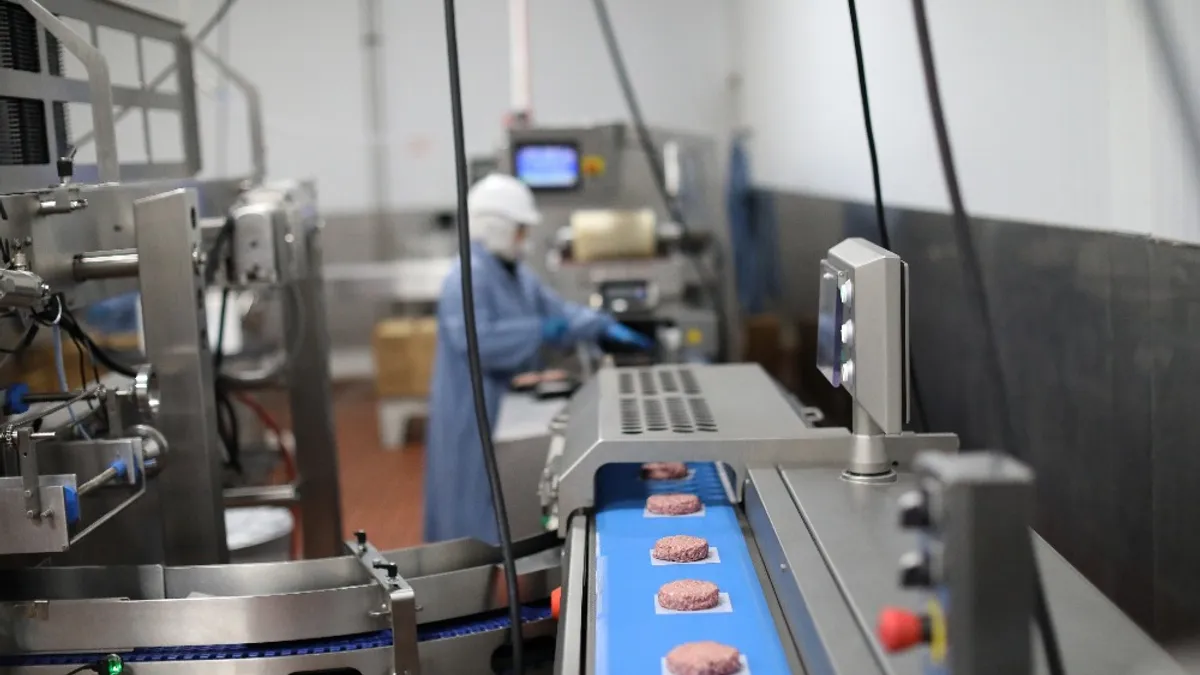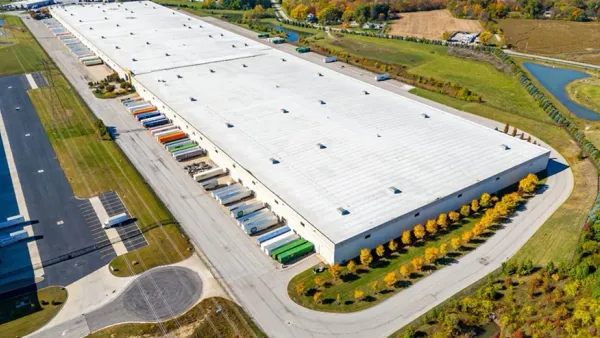Dive Brief:
- Beyond Meat incurred $5.9 million in repacking expenses as the plant-based food supplier diverted finished goods inventory from foodservice channels to retail channels, executives said on their earnings call for the second quarter of 2020 Wednesday.
- The costs included the transportation of finished inventory from 3PL facilities to Beyond Meat's warehouses to repack them for retail rather than foodservice, CFO Mark Nelson said on the call. The supplier also incurred costs to install new packaging and dispose of the original foodservice packaging.
- "In addition, we incurred costs associated with the write-off of unrecoverable portions of the original inventory items," Nelson said. "We do not anticipate a need for further repacking activity going forward."
Dive Insight:
Beyond Meat's CFO described "a sudden and significant shift in demand from our foodservice to our retail business," a phenomenon many food suppliers faced when the pandemic began to shutter restaurants, offices and schools.
At the beginning of the year, Beyond Meat's customer base was roughly 50-50 retail and food service.
The company switched food service production lines over to retail products as part of an effort to "pivot resources away from COVID-19 impacted business segments," CEO Ethan Brown said, which resulted in a mix of 88% retail and 12% food service.
"It's not a small exercise ... to make a change like that over a quarter," Brown said. "We had 50% of our infrastructure set up for a sector that essentially disappeared."
As Beyond Meat rebalanced product mix to meet demand, U.S. retail revenues rose 195% year over year in Q2 (ending June 27) while food service revenues dipped 61%.
But the supplier does have to grapple with increased inventory after it "dialed back" production in response to the pandemic, Nelson said. Q2 inventory was $143 million, compared to $121 million at the end of the first quarter of 2020. Slowed production resulted in an increase in pea protein stocks, which is one of the core ingredients in Beyond Meat's products.
The company previously struggled to maintain adequate supply of plant-based protein. The shortage of a key ingredient hampered progress in 2019 as demand increased from quick-service restaurants putting the meat alternative on their menus. Beyond Meat committed to diversifying its supplier base and sourcing three times the needed amount of protein in what Brown described as "conservatism."
On the Wednesday call, Nelson appeared unfazed by the increased inventory of pea protein, as deliveries are typically front-loaded ahead of high demand in the summer, and the raw material has a shelf life of about two years. "We see minimal risk of obsolescence at this time," Nelson said.
Safety stock will provide surety of supply for Beyond Meat as it continues to scale production, capacity and distribution worldwide.
"We would not allow the pandemic to slow or deter our infrastructure expansion activities," Brown said. The supplier acquired a Netherlands facility in June to support European operations and expects it to be operational by the end of the year. Brown also said Beyond Meat is on track with production development in Asia.















